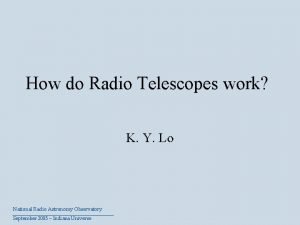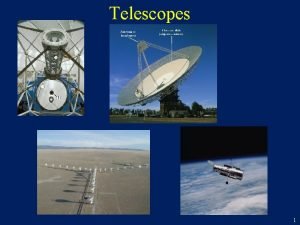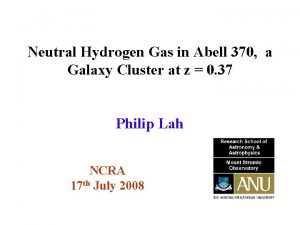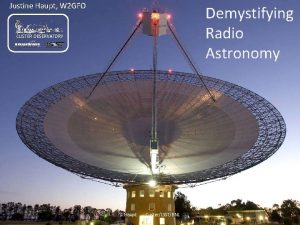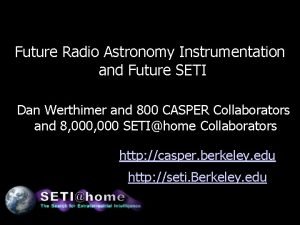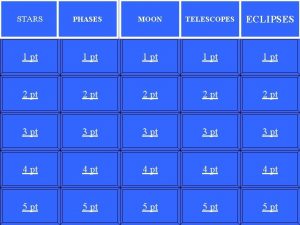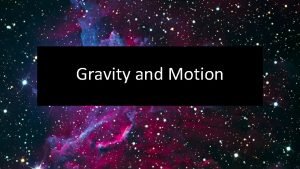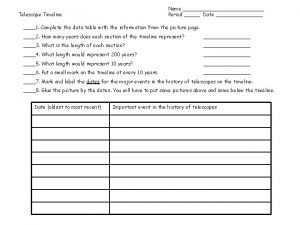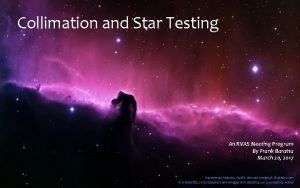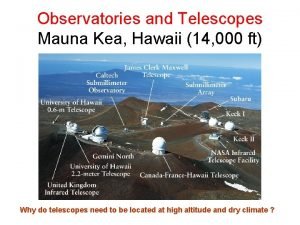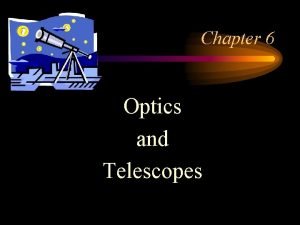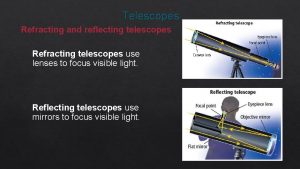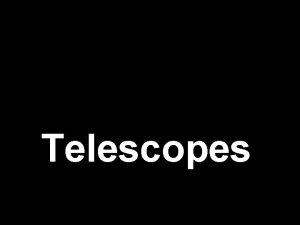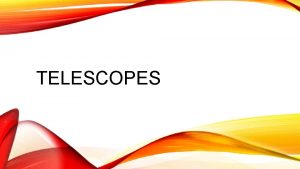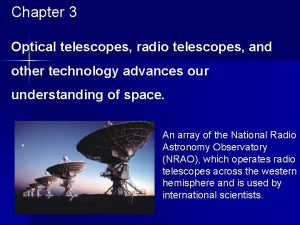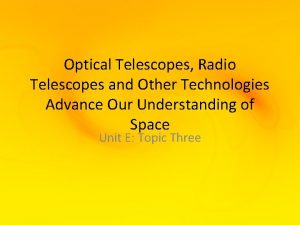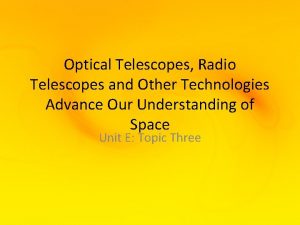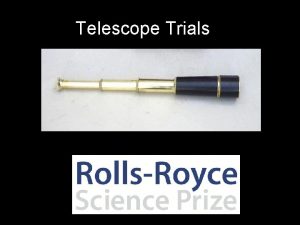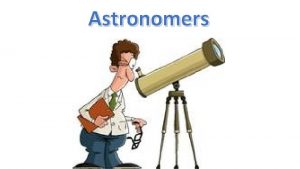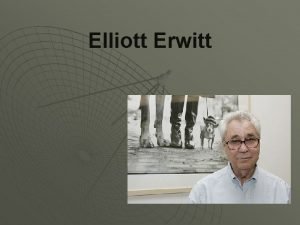Radio Telescopes Elliott Uses The radio telescope was












- Slides: 12

Radio Telescopes Elliott

Uses • The radio telescope was first devised during the 1930's. • During the Second World War, considerable advances were made with all sorts of techniques used for radio for communication, detection, and navigation. • Sophisticated apparatus was made for eavesdropping on enemy radio traffic to gain intelligence.

RADAR • Stands for: radio detection and ranging. • Originally developed to make a radio death-ray to make bombers fall out of the sky in flames! • The initial driving force for radio telescopy was to listen out for radio signals from other extra-terrestrial civilisations. • The first pulsar was discovered by Jocelyn Bell Burnell in 1967. It is was called LGM-1 (Little Green Men 1)

Jodrell Bank Telescope 1950 s Set up by a team from the University of Manchester. They set up war-surplus radio equipment bought from the army.

Jodrell Bank Stats • 75 m across. • The dish is parabolic, reflecting radio waves onto an antenna at the principal focus. The radio waves are very weak, and the focusing by the reflector makes them much more intense. • The diameter of the dish is sometimes called the objective diameter. • The antenna detects the intensified radio waves. • The receiver has to be tuned in, just like any other radio set. • The signal is passed down to very high quality amplifiers, and the signals are analysed by a computer. • The power of the telescope is proportional to the square of its diameter.

Biggest Radio Telescope • The Arecibo telescope in Puerto Rico. • It is built between some small hills that had a roughly parabolic valley. It is 300 m across. • The valley floor is paved in metal sheeting to act as the mirror.

Check Your Progress How much more powerful is the Arecibo instrument (300 m across) than the one at Jodrell Bank (75 m across)? What disadvantage does the Puerto Rico instrument have over the one at Jodrell Bank?

Resolving Power High resolution enables us to see things in good detail. The higher the resolution, the smaller the angle of separation that can be observed. The angular separation of two stars, A and B, is shown below:

The Raleigh Criterion The Rayleigh criterion specifies the minimum separation between two light sources that may be resolved into distinct objects. Wavelength of light Angular Separation Diameter of the aperture (how wide is your telescope? )

Check Your Progress What is the angular resolution of 10 metre wavelength radio waves by the Jodrell Bank Telescope whose diameter is 75 m?

Answer θ = 10 m ÷ 75 m = 0. 13 rad (= 7. 6 o)

Radio Sources In The Universe Radio astronomy has: • Revealed the existence of radio sources, such as quasars and pulsars; • Been used to analyse chemical elements in objects; • Tracked the movement of planets using the Doppler effect; • Looked at microwave radiation which gives evidence for the big bang.
 How do radio telescopes work
How do radio telescopes work Structure of radio telescope
Structure of radio telescope Radio telescope
Radio telescope Radio telescope
Radio telescope Structure of radio telescope
Structure of radio telescope Radio telescope
Radio telescope New moon telescopes
New moon telescopes A building that contains one or more telescopes
A building that contains one or more telescopes Modern telescopes make it possible for astronomers
Modern telescopes make it possible for astronomers History of telescopes timeline
History of telescopes timeline Star testing telescopes
Star testing telescopes Chromatic aberration affects reflector telescopes.
Chromatic aberration affects reflector telescopes. All modern large optical telescopes are refractors.
All modern large optical telescopes are refractors.
